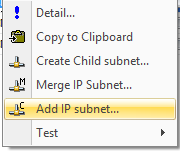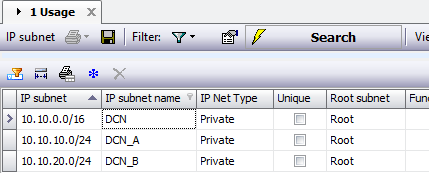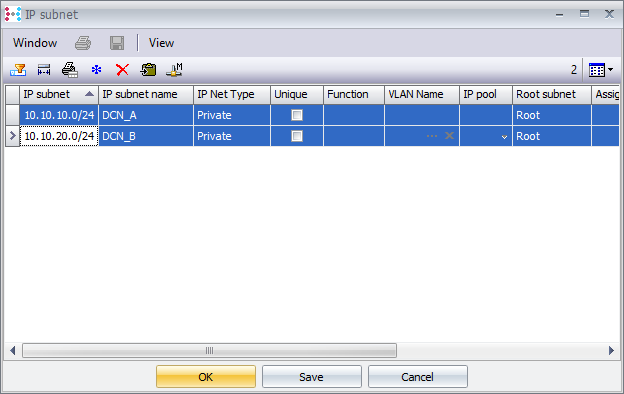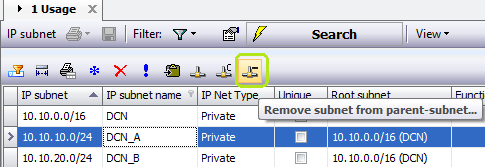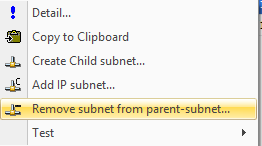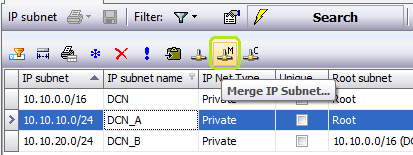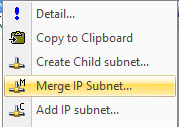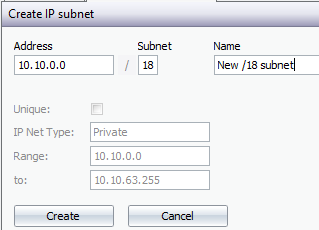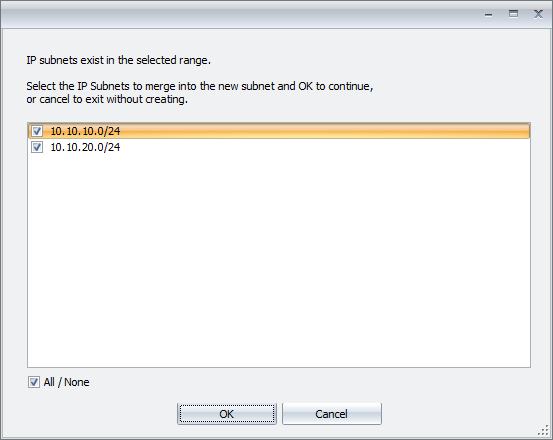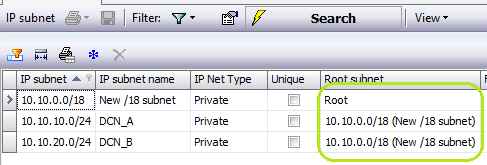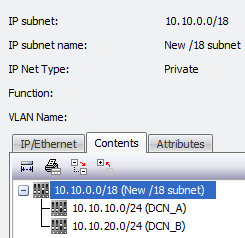IP Subnet operations
Add IP Subnet |
Available as action buttons in the IP Subnet Pool view,
and as context menu items for the IP Subnets
This operation is applied to a selected IP Subnet. It allows the user to search for other smaller subnets within its IP address range which can then be selected and added as a child of the selected subnet.
This is only possible where there are IP Subnets found within the same range, and where there is no address that is assigned from both IP Subnets.
In the below example, the two /24 subnets are within the range of the /16 subnet:
Select the /16 IP Subnet and launch the Add Ip Subnet action:
In the resulting pop-up window, the IP Subnets within the same rage are listed. Select the rows to be added and “OK” to apply:
The subnets are now children of the selected parent:
The address assignments of the respective subnets are combined and conserved.
|
Remove IP Subnet from parent |
Available as an action button in the IP Subnet Pool view,
and as a context menu item for the IP Subnet
This operation is applied to one or more selected IP Subnets that is a child of another. It removes the selected IP Subnet from its parent, creating a new root IP Subnet.
In the below example, the selected /24 IP Subnet is a child of the /16 subnet.
Select and launch the remove action. User is prompted to confirm. On confirming the removal, the /24 is then a separate “root” subnet:
The address assignments of the IP Subnet being removed are preserved in the removed subnet only.
|
Merge Subnets |
This action is similar to “Add Subnet” with the slight difference that the action is launched from an IP Subnet to be merged into a larger parent range. The action can apply to one or more IP Subnets where a common parent address range is found.
It is available as an action buttons in the IP Subnet Pool view
and as a context menu item for the IP Subnet
The address assignments of the respective subnets are combined and conserved.
|
Enhance IP Subnet Creation Workflow |
When creating an IP Subnet that will be a parent of existing ranges, if the creation is allowed (that is if the IP Subnets within the range are not flagged as unique system wide), the user is prompted to select which, if any of the IP Subnets to add into the new larger IP Subnet.
In the below example, two /24 IP Subnets are defined:
If creating a new IP Subnet that covers both of these IP Subnets:
On create, the user is prompted to select IP Subnets to be merged, if any:
On OK, the two /24 IP Subnets are merged as children of the newly created subnet:
In IP Subnet detail for the /18 subnet:
|


